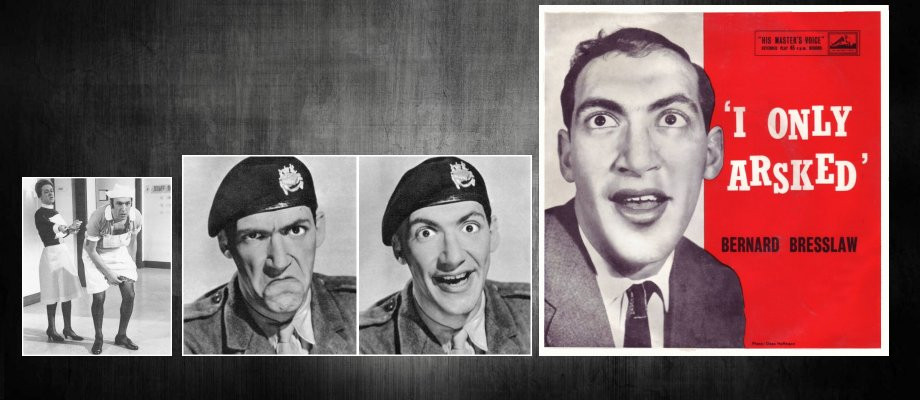
Bernard Bresslaw
Cockney born and Cockney bred, Bernard Bresslaw is best remembered as the gormless giant of no fewer than 14 Carry On films, often playing the lumbering oaf foil to Sid James' conniving characters. At 6 foot 7 inches, he told everyone that the reason he grew to that height was to reach the top more easily. But reaching the top didn't prove to be too difficult for Bernie, and thanks largely to a simple, three-word catchphrase, "I only arsked", his popularity swept Britain in the 1950s in a matter of weeks. It was not thanks to his size but thanks to his huge talent that he stayed at the top for so long.
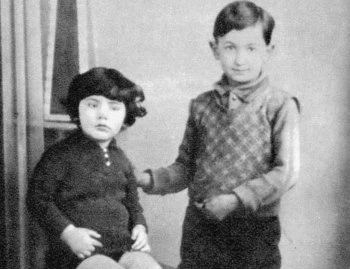
Born on 25 February 1934, the youngest of three sons, Bernie’s father and mother were second-generation Polish immigrants. The young Bernie was a giant from birth, weighing in at 10lb 4oz and wearing size nine shoes before he hit his teens. The shoe size was a big disappointment to his mum – she wanted him to be a tap dancer. His father wanted his youngest son to follow in the family trade as a tailor’s presser, or take some ‘safe clerical job’. With this in mind Bernie was sent to ‘Coopers’ Company School’ in Mile End, not far from Eric Street where the family lived.
Although none of the masters would say that he shone in any particular subject, he did well at sport, and made the first cricket eleven. He showed a particular interest, too, in the end-of-term plays, and was proud of the fact that he was often given ‘star’ parts, and never fobbed off with spear-holding roles. At an age when most of his friends were dreaming of being train drivers or rocket pilots, Bernie’s ambition was to become an actor.
Bernard went to work on this ambition, and rather surprised his family when he was able to tell them that he’d been awarded a scholarship at the Royal Academy of Dramatic Art, winning one of only two places given annually by the London County Council. This news was met with all kinds of objections. ‘Acting is a dicey sort of job. Why not plump for something in an office? Or commerce? Something that earns money,’ said his father.
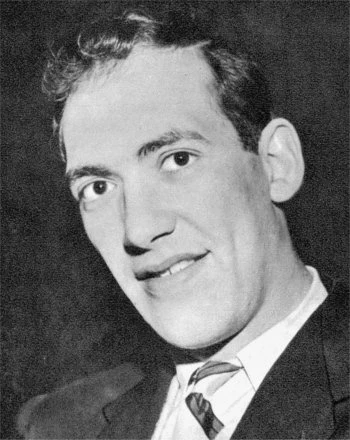
But Bernie was insistent, studied at RADA and won the Emile Littler Award as ‘the actor most likely to succeed’, when he was 17, for his performance of Christopher Fry’s ‘ Venus Observed ,’ not only winning the Award but also personal plaudits from the playwright himself. “At RADA I had to learn ballet dancing,” said Bernie. “Imagine me pirouetting?” Bernard graduated and went into a notoriously tough form of rep – playing RAF and Army camps, Borstals and mental hospitals. He later said that the demands of keeping happy the demanding all-male houses – who would soon let you know if you weren’t up to scratch – was superb discipline and training for his later career. During his time at RADA, he was also picked by Laurence Olivier to play a wrestler in his production of ‘The MacRory Whirl.’

Then came a two-year stint at an Army camp for his own term of National Service. He was a driver-clerk in the Royal Army Service Corps. This is where he found the elements for his gormless Army Game character, Private Popeye Popplewell. “I suppose it was when I was in the Army that I came across Popeye characters and stored away in my mind their mannerisms, although when I came to play Popeye I didn’t fashion the role on anyone in particular.”
After his own real-life army game, came a grind of small parts in provincial repertory theatres. "My first stage job," he once said in interview "was a man of seventy, with a walrus moustache. This was great till the night the moustache fell into the leading lady's soup. Unfortunately, she spooned it up and chewed it. After that I was in four West End plays, playing serious parts in three of them, including the good-hearted but bullying seaman in The Good Sailor. Different roles called for different accents. On television I was a Belgian in a story about the life of Conrad, later a Spanish detective sergeant in a 17-century Restoration comedy."
There were also a few small film parts such as the role of Garth in Men of Sherwood Forest, before Bernie landed a part in the hugely successful radio series, Educating Archie. During that time he also made several television documentaries and appeared in an Army play called Who Goes There? and comedies like Joan and Leslie and the Max Bygraves Shows. Then he landed a small part in a Norman Wisdom film called Up In The World. The scriptwriter was Sid Colin who thought Bernie might do for a character he was creating for a new series for Granada Television. The part of Popeye in The Army Game. It was the turning point of Bernie’s career.
Bernie went along for the audition. “When it came to my turn I was told to stand up and look gormless. So I opened my wide, saucer eyes, dropped my jaw, and shambled round the room like a prehistoric ape. The next request was to ‘say something’. So I talked a lot of nonsense in my best deep-down voice, and rounded the whole thing off with a ‘how’s that?’. The official said ‘You’ll do’. And that’s how the lark started.

The lark, as Bernie called it, snowballed, getting bigger and bigger until it swept the country taking him to the dizzy heights of stardom. The success of The Army Game led to a successful stage show, again starring Bernie, and a release of the show's theme tune. He followed this chart topper with one of his own, ‘Mad Passionate Love’, which made it to Number 6 in 1958. There was also a spin-off film titled after his now nationally known catchphrase I Only Arsked However, his film career hit an obstacle in 1959 with the disastrous The Ugly Duckling, but he remained firmly in the public eye playing roles in popular TV series such as Danger Man and Z Cars.
It might have been different, though. "At the same time (as I was offered The Army Game) I had an offer to play in another TV series called Three 'Tough' Guys, in which I would have been a sort of Damon Runyon character, always getting into trouble. The reason I chose The Army Game was security. It had an option for 39 shows if the early ones were successful. I'm glad I chose it-the other series only lasted six shows." (Three 'Tough' Guys starred US comic actor Harry Green, Peter Welch and Warren Mitchell, who probably played the character that Bernie turned down).
Bernard Bresslaw was a household name when, in 1965, he took on the first of 14 'Carry On' roles as Indian brave Little Heap in Carry On Cowboy. He went on to star as such memorable ‘Carry On’ characters as warrior Bungdit In in Carry On Up The Khyber, and sinister butler Sockett in Carry On Screaming, and Bernie played them all while pursuing his classical career in the theatre. His dedication to the ‘Carry On’ series was without question. For the filming of Carry On Up The Jungle, he even went as far as to learn his lines in a genuine African language; only to find out that the actors hired to play alongside him were from the West Indies. Bernie remained a regular on the stage, performing in such plays as Charley's Aunt, Run for Your Wife and Me and My Girl.
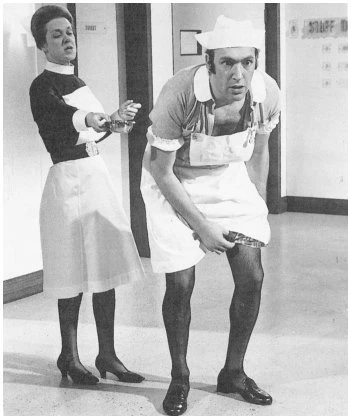
Bernie also appeared at the Regents Park Open Theatre in a number of Shakespearian roles and won the Variety Club of Great Britain’s Most Promising Newcomer Award. Bernie was as much at home in the classics as he was in broad comedy. His dramatic credits included Quince in A Midsummer Night’s Dream with Frank Dunlop’s Company; the professor in Ionesco’s The Lesson; a sixteenth-century monk in Rabelais at the Round House and the lead role in the Old Vic’s production of Oblomov.
Bernie continued appearing in television and in the 1960s helped create one of Doctor Who’s most enduring monsters when he played an Ice Warrior. And although he was thoroughly encased in fibreglass and totally unrecognisable, he gave the character of Varga (the Ice Warrior leader) a vivid sense of identity and menace.
In the 1980s, virtual blindness threatened his career and his love of reading Racine, Milton and history. But a pioneering operation at Moorfields’ Hospital saved his sight and he was back on stage. His later stage work won Bernie great acclaim but the heavy workload he took on drove him to exhaustion and he collapsed at a 1992 showbiz dinner.
He returned to the 'Carry On' fray later that year alongside Barbara Windsor in Wot a Carry On in Blackpool. But his return was to be, sadly, short-lived. It was just before a performance as Grumio in The Taming of the Shrew in Regent's Park where Bernie suffered a heart attack and died. He was 59. He was married to dancer Betty Wright from 1959 until his death, and they had three sons. Bernie's death shocked all who had worked with him.
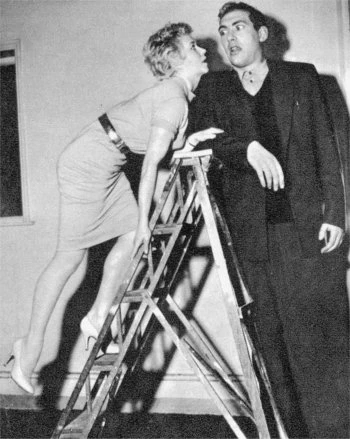
Bernard Bresslaw could turn his hand to any role although he is probably best remembered as being cast as an amiable idiot. In truth, this real-life gentle giant was not only large in stature but also a huge and often underrated talent who always remembered the advice he was once given on the film set of Too Many Crooks by Terry Thomas: “Be nice to people on your way up the ladder, for you may meet them again on your way down.” It was advice that Bernie always remembered although he remained at the top of his profession throughout his career. On TV, movies or the theatre he has undoubtedly been regarded as one of Britain’s unsung heroes for too long. Bernard Bresslaw was one of Britain’s foremost actors who entertained us for over forty years: A true giant in every way.
Published on May 31st, 2019. Early biography adapted from 'He Only Arsked' by Molly Douglas originally published in the 1959 'Girl Film and Television Annual' Number 3. Other sources: The Television Annual for 1960 and various others. Remainder - Laurence Marcus.









